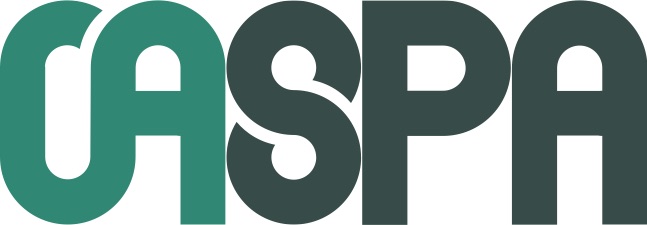أثر استراتيجية فجوة المعلومات في تحصيل طلاب الصف الاول المتوسط لمادة العلوم وذكائهم الاجتماعي
DOI:
https://doi.org/10.36473/ujhss.v59i1.1032الكلمات المفتاحية:
استراتيجية فجوة المعلومات , التحصيل , الذكاء الاجتماعيالملخص
يهدف البحث الى التعرف على (أثر استراتيجية فجوة المعلومات في تحصيل طلاب الصف الاول المتوسط لمادة العلوم وذكائهم الاجتماعي)، وللتحقق من هدف البحث اعتمدت الباحثة التصميم التجريبي ذا الضبط الجزئي، وبلغت عينة البحث (64) طالباً بواقع (32) طالباً في المجموعة التجريبية و(32) طالباً في المجموعة الضابطة، كافأت الباحثة مجموعتي البحث في متغيرات (العمر الزمني، اختبار الذكاء، درجات اختبار المعلومات السابقة في مادة العلوم)، وحددت المادة العلمية بالجزء الاول من كتاب العلوم المقرر، صيغت الأغراض السلوكية لهذه الفصول التي بلغ عددها(262) غرضاً سلوكياً ممثلة للمستويات الأربعة لتصنيف بلوم في المجال المعرفي (تذكر، واستيعاب، وتطبيق، وتحليل)، وأعدت إحدى الأداتين وهو الاختبار التحصيلي وتبنت مقياس(عبدالحميد،2014) للذكاء الاجتماعي، إذ تألف الاختبار التحصيلي من (27) فقرة من نوعين : أحدهما تمثل بالاختبارات الموضوعية من نوع الاختيار من متعدد بأربعة بدائل ، بَلغ عددها (24) فقرة، وثلاث فقرات من النوع المقالي تمثلت بالفقرات(25،26،27)، أما مقياس الذكاء الاجتماعي فقد تألف من (40) فقرة بأربعة بدائل، وحسبت الخصائص السايكومترية والثبات لهما، وحللت البيانات وعولجت باعتماد الحقيبة الاحصائية SPSS، وقد استغرقت التجربة(10) أسابيع، وفي نهاية التجربة طبقت الباحثة الاختبار التحصيلي ومقياس الذكاء الاجتماعي على طلاب مجموعتي البحث، وصححت وعولجت احصائياً ؛ فأظهرت النتائج تفوق طلاب المجموعة التجريبية على المجموعة الضابطة في تحصيل مادة العلوم والذكاء الاجتماعي.
التنزيلات
المراجع
References:
Abdel Hameed ,B. H. )2114( ," The Effect of Z Strategy on the Achievement of
Second Grade Students in Physics and their Social Intelligences ,"Unpublished Master
Thesis ,College of Education Ibn al-Haytham , University of Baghadad.
Abdul Majeed, A. (2004), "Analysis of the Results of Research on the Development of
Thinking in the Field of Teaching and Learning Mathematics in the Light of the
Concept of Stistical and Practical Evidence", Journal of Studies in Curriculum and
Teaching Methods, No. 29, Egyptian Society for Curriculum and Teaching Methods,
Cairo, pp. 15-53.
Abu Amsha, I. Kh. (2013), "Social Intelligence and Emotional Intelligence and its
Relation to Happiness among University Students in Gaza Governorate", Unpublished
MA Thesis, Gaza, Palestine.
Amer, T. A. and Mohammed ,R. (2013). Multiple Intelligences. Dar Al Yazuri,
Amman: Jordan.
Assaad, W. (2001). Encyclopedia Dictionary of Psychology. Publications of the
Ministry of Culture. Syrian Arab Republic: Damascus.
Buzan, T. (2007). The Power of Social Intelligence, Vol. 3, Jarir Bookstore, Saudi
Arabia.
Al-Dabbagh, F. T. (1983). Testing successive matrices for Iraqis. Mosul University
Press. Mosul.
Al-Dhahir, Z. M. ; Jacqueline T., and Ezzat A. J. (1999). Principles of Measurement
and Evaluation in Education. Dar Al-Thaqafa, Amman.
Ghabari, Th. A., and Abu Shu'air ,Kh. (2010). Intellectual Capabilities between
Intelligence and the Brain. 1, Arab Society Library, Riyadh: Saudi Arabia.
Al-Hariri, R. (2011). Total Quality in Curricula and Methods of Teaching. 1st ed. Dar
Al-Masirah, Amman.
Jaber, A. (1982). Learning Psychology and Learning Theories. Dar Al-Nahda Al
Arabiya, Cairo: Egypt.
Jaber, A. (1984). Intelligence and Measurements. 1
st ed. Dar al-Nahda al-Arabia, Cairo:
Egypt.
Al-Khawaldeh, M. M. (1997). Methods of Public Teaching. 2nd ed. Ministry of
Education, Yemen.
Ali, M. El Sayed (2011). Recent trends and applications in curriculum and teaching
methods. Dar Al-Masirah, Amman.
Al-Nabhan, M. (2004). The Basics of Measurement in Behavioral Sciences. 1st ed. Dar
Al-Shorouk. Amman.
Al-Qaisi, L. N. (2005). "Emotional intelligence competencies among secondary school
principals", Unpublished Master Thesis, Higher Arab Institute for Educational and
Psychological Sciences, Baghdad University, Iraq.
Qatami, N. M. (2010): Thinking and intelligence of the child, 2nd, Dar Al-Masirah,
Amman: Jordan.
Qatami, Y. and Yousef, R. (2010. The Social Intelligence of Children in Theory and
Practice. Dar Al-Masirah, Amman: Jordan.
Al-Safi, N. B. H. (2016), "The Impact of the Information Gap Strategy on the
Achievement of Students in the Fifth Grade and Their Motivation towards Science",
Unpublished Master Thesis, Faculty of Education, Wasit University.
Saidi ,A Bin Khamis ,A., and Al Hosnaya, H. A. (2016). Active Learning Strategies,
Strategy with Applied Examples. Dar Al-Masirah, Amman.
Al-Shammari, M.i (2011). 101 strategies in active learning. General Directorate of
Education in Hail. Saudi Arabia.
Shehata, H. andAl-Najjar, Z. (2003). Glossary of Educational and Psychological Terms.
The Egyptian Dar, Cairo.
Al-Zaghloul, E. A.(2002). Principles of Educational Psychology. University Book
House, Jordan.
Al-Zaghloul, E. A., and Al-Mahdawi A. F. (2004). Introduction to Psychology, 3rd ed.
University Book House, United Arab Emirates.
Ashour ,A.Y.M. (2012) ." Effectiveness of using active learning strategy to achieve
certain objectives of the physical education lesson for preparatory-stage students , "
Journal of American Science , Vol. 8, No.11, PP. ( 272-276).
Basham , L. (1994) . "Active Learning and the at Risk stunning : Cultivating Positive
Attitudes towards science and Learning", EDRS, ED 374 088, SP 035 394, Curry
School of Education, University of Virginia.
Lacanlale, E. P. (2013 ) ." Development and Validation of a Social Intelligence
Inventory" ,International Journal of Information and Education Technology, Vol.
, No. 2.
Nagra ,V. (2014):" Social Intelligence and Adjustment of Secondary School Students",
Indian journal research , Volume : 3 | Issue : 4












